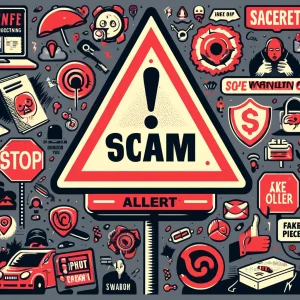According to recent reports, Kraken has reached an agreement with the U.S. Securities and Exchange Commission (SEC) that compels the business to cease operations linked to cryptocurrency staking. According to the SEC, Kraken failed to register the offer and sale of its crypto staking-as-a-service business.
Kraken to shut crypto staking service
Many centralized exchanges, such as Kraken and Gemini, allow consumers to stake their tokens in order to earn interest on digital assets that would otherwise stay idle on the platform.
Today we charged Kraken with failing to register the offer and sale of their crypto asset staking-as-a-service program, whereby investors transfer crypto assets to Kraken for staking in exchange for advertised annual investment returns of as much as 21 percent.
— U.S. Securities and Exchange Commission (@SECGov) February 9, 2023
Investors often vault their crypto assets with a blockchain validator, which checks the correctness of transactions on the blockchain. As compensation for storing those assets, investors can obtain additional crypto tokens.
Through its staking service, Kraken offered rewards of up to 20% annual percentage yield on its website. The exchange also stated on its website that the prizes would be delivered to clients twice a week.
Thursday, the SEC filed its case in federal court. While Kraken’s website advertised a 20% return on its staking service, the SEC’s press release indicated it might reach 21%.
The SEC announced that Payward Ventures, Inc. and Payward Trading Ltd., the registered businesses that makeup Kraken, will discontinue their staking services and programs. Since at least 2019, the initiatives have provided the general public with access to staking services.
The complaint alleges that Kraken touts that its staking investment program offers an easy-to-use platform and benefits that derive from Kraken’s efforts on behalf of investors, including Kraken’s strategies to obtain regular investment returns and payouts.
SEC’s Press Release
The SEC’s assessment of Kraken’s staking setup highlighted the “risks” investors assume when staking their tokens with staking-as-a-service providers, who provide “very little protection,” according to a press release.
In its formal response, Kraken stated that beginning today, the exchange “will automatically unstake all U.S. client assets enrolled in the on-chain staking program.” The company acknowledged, however, that it will continue to offer staking services to non-U.S. clients through a separate business.
Kraken has also been charged $30 million in disgorgement, prejudgment interest, and civil penalties. Following the agreement, SEC’s Chair asserted:
Whether it’s through staking-as-a-service, lending, or other means, crypto intermediaries, when offering investment contracts in exchange for investors’ tokens, need to provide the proper disclosures and safeguards required by our securities laws. Today’s action should make clear to the marketplace that staking-as-a-service providers must register and provide full, fair, and truthful disclosure and investor protection.
Gary Gensler
SEC grows more toward crypto regulation
Today’s outcome is the latest in a string of SEC actions targeting the cryptocurrency industry. It comes just weeks after the SEC asserted that crypto lender Genesis and crypto exchange Gemini issued and sold unregistered securities.
In addition, the decision was taken just a day after Coinbase CEO Brian Armstrong said that he had received reports that the SEC might restrict retail customers from using the staking feature. The feature entails putting up crypto tokens as collateral to power blockchains like Ethereum.
TLDR: If you're American and use Kraken the SEC just kicked you off staking and the IRS is asking for your data to 'determine your correct federal income tax liability
— db (@tier10k) February 9, 2023
However, the SEC decided not to respond but to take direct action in reaction to Armstrong’s Wednesday night remarks. This casts a shadow of doubt on Coinbase’s exclusive staking services, along with other exchanges operating in the United States.
SEC Chair Gary Gensler has already suggested that staking may need to pass the Howey Test, even if it is propagated through regulated intermediaries such as Coinbase or Kraken. The Howey Test has been used for several decades to evaluate whether a token is a security or not under the laws of the country.
Gensler remarked at the time that staking seemed to be comparable to lending. In the past, the SEC has filed charges against lending companies and settled those charges with the companies, such as the now-defunct lender BlockFi.
Settlements are not law. They're a decision that the economics of settling are better than fighting, no more.
— Jake Chervinsky (@jchervinsky) February 9, 2023
The SEC thinks staking-as-a-service is a security. Kraken didn't admit or deny either way.
It may be a tough question, but the SEC hasn't answered it either way today.
Aside from the ongoing SEC investigation, Kraken has just suspended operations in Abu Dhabi, despite having been granted a municipal license there only a year ago. Previously, it suspended operations in Japan, citing declining bitcoin demand and the country’s tight regulatory environment.





